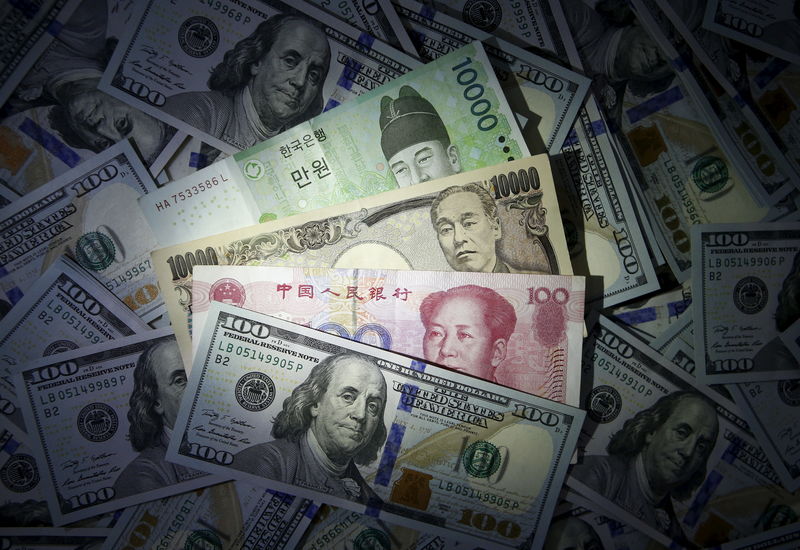By Nicholas Owen
JAKARTA (Reuters) - Asian policymakers on Thursday applauded a historic turn in U.S. monetary policy, but analysts warned the region's economies face vulnerabilities, with Taiwan cutting interest rates, although markets took the Federal Reserve rate hike in their stride.
The prospect of the first hike in U.S. rates in almost a decade had kept emerging markets on edge in the weeks before the decision, amid fears investors would redirect capital to higher-yielding U.S. debt in a fresh blow to their shaky economies.
However, an initial rally smoothed the brows of Asian central bankers, who were the first to respond to the hike as U.S. policymakers sought to end an era of ultra-low rates that followed the global financial crisis.
"The Fed's action brings an end to the lift-off uncertainty," said Amando Tetangco, the governor of the Philippine central bank, which left interest rates on hold at a monetary policy meeting on Thursday.
Taiwan's central bank unexpectedly cut its policy rate by 12.5 basis points, suggesting that worries about the region's sluggish growth, not capital flight, are at the front of policymakers' minds.
The relief among policymakers, and investors, comes as the global economy navigates some rough terrain, with many export-reliant economies hit by cooling growth in China and deflationary pressures rising amid a collapse in commodities.
Add to that mix pedestrian growth in Japan and the euro zone, and it isn't hard to see why many investors were nervous about the prospects of rising borrowing costs in the United States.
Indeed, the more composed initial markets reaction was aided by the fact the Fed had clearly flagged the move in advance, and also said the pace of tightening would be gradual - an important signal for many asset markets adjusting to less stimulus after years of flush Fed liquidity.
Indonesia was at the center of the "taper tantrum" in mid-2013, when the Fed talked about cutting its bond purchases, and this year its rupiah currency has been one of the region's worst performers.
But the rupiah rallied on Thursday, and other regional currencies rose initially before pulling back, with Indonesia's President Joko Widodo welcoming the Fed's decision "because there is certainty."
Bank Indonesia kept interest rates unchanged on Thursday, as expected, but said it saw more room to lower them next year, although it would monitor market reaction to the Fed hike.
"The effect is positive for us - the stock index rose, the rupiah strengthened, the financial market reacted positively," Widodo told reporters.
MORE EASING IN ASIA
Others, however, cautioned that higher interest rates would pose problems for economies that were too reliant on debt-fueled growth.
"The Fed's hike will stiffen the headwinds for growth in Asia," said Fred Neumann, HSBC's chief Asia economist.
"Rising funding costs, especially in highly indebted economies, will slow the leverage cycle on which regional demand has increasingly come to depend," he said.
And despite the Fed hike, policy in much of Asia is set to loosen further in a reflection of the fitful growth in the region.
Barclays (L:BARC) economist Wai Ho Leong expects monetary easing in the first half of next year to be led by India, China and probably also Indonesia and South Korea.
"No one is turning hawkish after the Fed has hiked," he said.
"Most central banks are dovish. This is to counter the effects of the trade recession, which hits Asia disproportionately harder than any other region in the world."
NOTES OF RELIEF
Hong Kong's top central banker, who was obliged to immediately match the Fed's hike under the Chinese-run city's peg to the U.S. dollar, said he expected only a modest outflow of capital as a result of the Fed's move.
China's central bank also added to the reassuring mood, penciling in economic growth of 6.8 percent for next year in a working paper released on Wednesday, down only slightly from an expected 6.9 percent this year.
Data showing drops in exports from Japan and Singapore, including big falls in shipments to China, sounded some of the few sour notes on Thursday, but Tokyo too voiced relief that emerging markets were taking the U.S. rate hike in their stride.
Indian policymakers, including Reserve Bank of India Governor Raghuram Rajan, have been touting the South Asian nation as being more insulated to Fed-related volatility than other emerging markets, due to its better economic fundamentals.

"I think we are relatively well cushioned," Chief Economic Adviser Arvind Subramanian said.